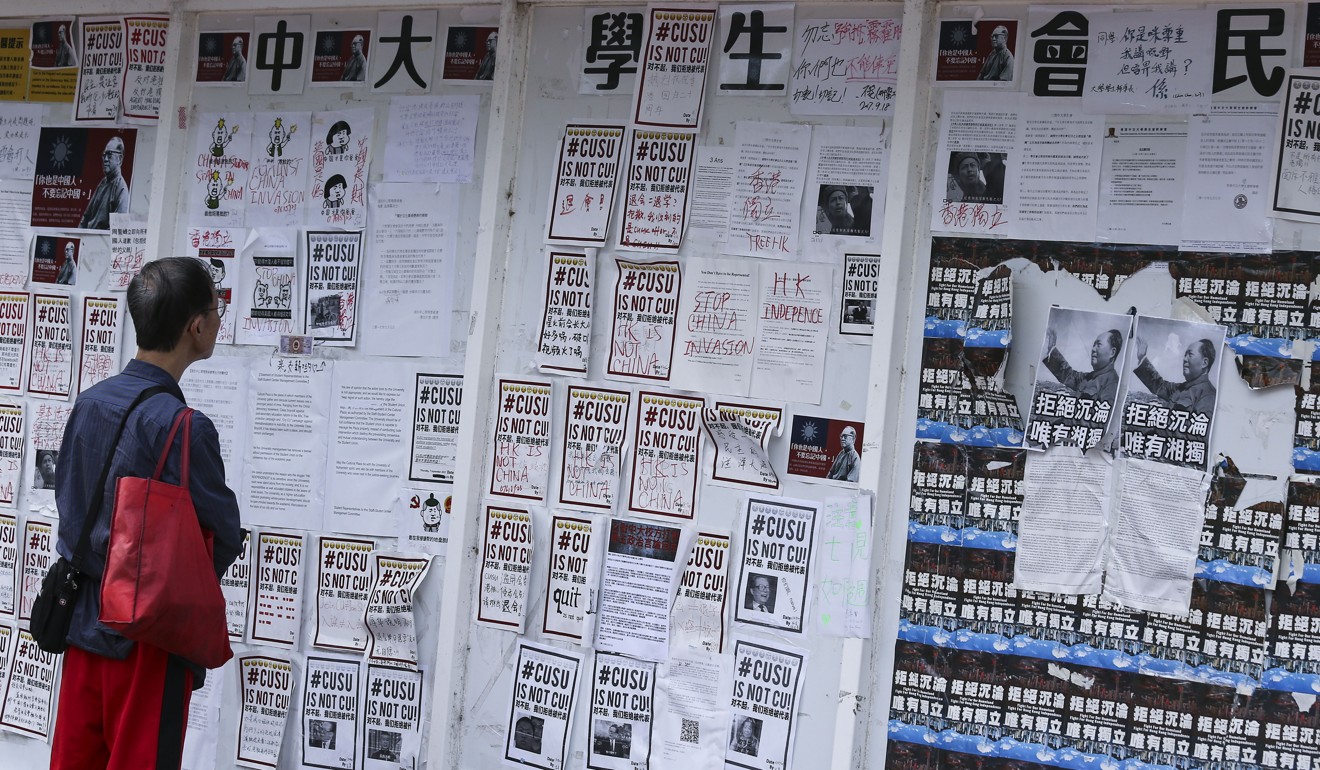
Communist Party mouthpiece accuses Hong Kong university student unions of ‘selling’ independence under guise of free speech
Commentary in overseas edition of People’s Daily says students and academics have turned campuses into their own political stage
A Communist Party mouthpiece lashed out at university student unions in the city on Thursday, accusing them of touting Hong Kong independence under the guise of free speech and academic research, an act it compared to “selling dog meat but displaying a sheep’s head”.
“Using the ‘sheep’s head’ of freedom of speech and academic research to sell the ‘dog meat’ of ‘civil disobedience’ and ‘self-determination’ of Hong Kong is not something new,” read the commentary published in the overseas edition of the state-run People’s Daily, making use of a Chinese saying to describe trickery or false advertising. The phrase “not something new” was referring to the 79-day pro-democracy Occupy movement in 2014.
“This time, the parties involved have tried their best to cover up their calls for ‘independence’ in the name of a ‘learned society’ … muddling the distinctions between ‘academic discussion’ and ‘political advocacy’ merely to endorse their own unlawful activities,” the piece said.
New Chinese University chief Rocky Tuan keeps it short on questions of Hong Kong independence
The newspaper also called out students and academics, saying they had used freedom of speech as a shield and turned university campuses into their own political stage.
While Hong Kong had freedom of speech and academic freedom, the writer said, any such freedoms had to be based on compliance with the law. Advocating Hong Kong’s independence from the mainland violated the national constitution and the Basic Law – Hong Kong’s mini-constitution – and “trampled” on the “one country, two systems” framework under which the city was governed, the piece continued.

Last Friday, the Society for the Study of Hong Kong Independence posted a recruitment message on CUHK Secrets, a popular Facebook page on which the institution’s students post anonymously.
The club, which claimed to have 40 members so far, said its aims were to: study the feasibility of Hong Kong independence; provide a platform for members to discuss it while safeguarding freedom of speech and academic freedom; raise awareness of independence topics; and organise related activities.
The university earlier said it would approach the student union’s representative council, which manages the society, to understand the matter, adding that activities associated with CUHK should be conducted in accordance with the Basic Law.
HKU’s reputation has been hurt by politics
In a statement released on Wednesday, the university said that “any speech or act that incites or promotes Hong Kong independence is in contravention of the Basic Law”, but added that the school would continue to do its utmost to protect freedom of speech and academic autonomy while ensuring the campus was a place for “the engagement of rational intellectual pursuits, instead of political contests”.
Aside from criticising the CUHK group, the People’s Daily commentary cited a recent study conducted by the educational website Education18.com and the University of Hong Kong’s Public Opinion Programme indicating that HKU had dropped from the top spot in terms of institutes of higher learning most favoured by secondary school heads in the city, blaming frequent involvement in political issues and governance problems that may have altered public perception of the school.
According to the Times Higher Education’s World Universities Ranking for 2018, however, HKU rose in standing and achieved its best position since 2014.

